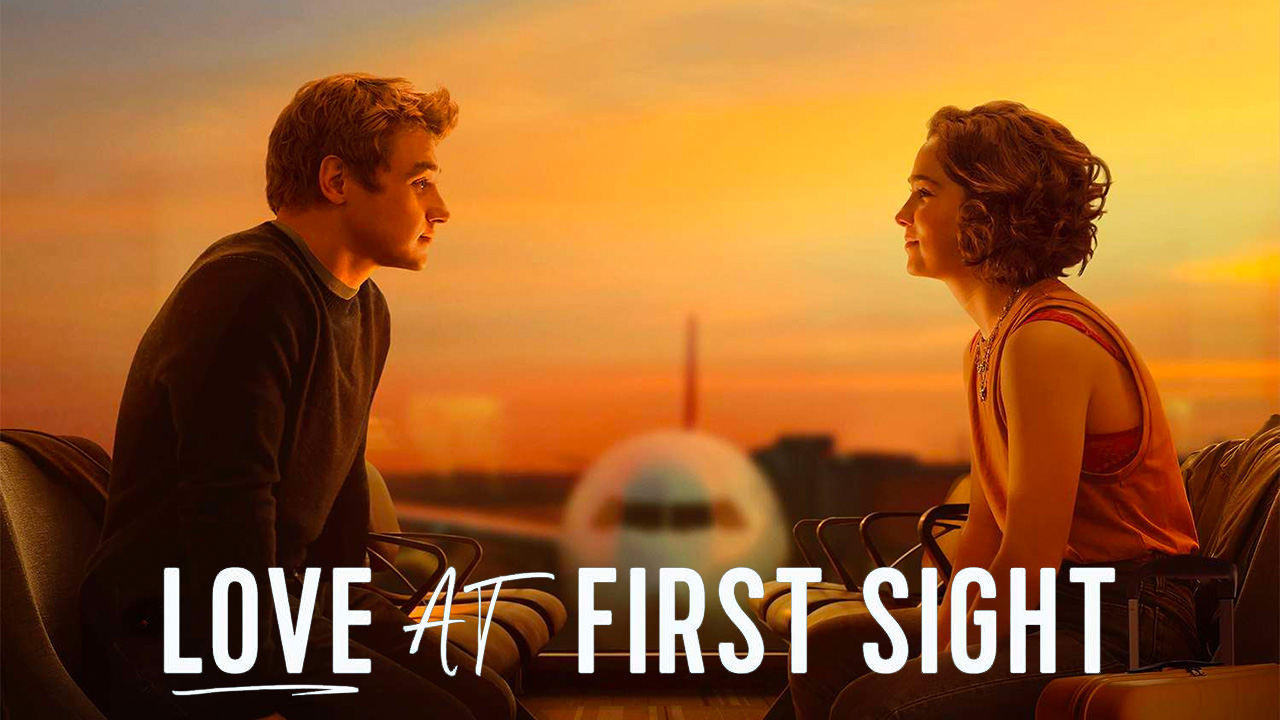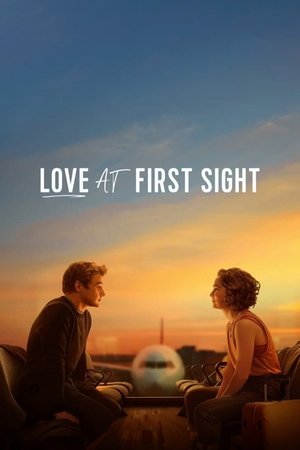Creating contemporary love stories can be a daunting task. While audiences have an enduring affection for them, crafting a believable and captivating reason for the central couple not to immediately embrace happiness can be increasingly challenging. These days, it’s become quite a puzzle to find a compelling rationale to keep them apart for the better part of an hour and a half, all while ensuring they remain relatable yet aspirational. The conventional roadblocks to romance, such as lies, misunderstandings, or societal constraints (like the classic “Abie’s Irish Rose” depicting a Jewish man in love with a Catholic girl), have become as outdated as racing to the airport for a love declaration in an era when everyone carries a cell phone.
Regrettably, “Love at First Sight” fails to surpass the reliability of a cell phone’s finicky battery as the main obstacle. Furthermore, its lackluster script falls short of providing compelling reasons to invest in the couple’s compatibility or their journey to a happy ending.
“This is not a story about love,” asserts the narrator (Jameela Jamil). “It is a story about fate. And statistics.” However, one could argue that the narrative hardly centers on any of these elements, despite the abundant statistical references and one of the protagonists identifying as a “maths geek” (a British one at that). True to its title, the film introduces us to a couple who share an immediate attraction at an airport. But, despite the banter and exchanged confidences, love remains elusive, regardless of the numerous pop songs on the soundtrack.
Our first glimpse is of Hadley (Haley Lu Richardson), dashing through JFK Airport in New York, attempting to catch a flight to London. The narrator provides a statistical backdrop, explaining how December 20 marks the airport’s busiest day of the year, with over 193,000 passengers causing an average delay of 23 minutes at check-in and a peak wait time of 117 minutes at security. While not a classic “once upon a time” opening, it sets the stage for Hadley missing her flight by a mere four minutes, forcing her to wait for the next one, which offers only a business-class seat.
This situation affords her the opportunity to search for a place to charge her cell phone, leading to her serendipitous encounter with Oliver (Ben Hardy), a Yale student studying statistics and data science. He chivalrously offers her a charge, to which she responds, “Sorry, I don’t share electronics until the third date.” Their introductions continue playfully, with her likening his name to “Oliver Twist,” and him responding wryly about American culture. As events unfold, they share airport food and eventually race to board the plane, where Oliver is surprisingly upgraded to the business class seat next to Hadley due to a malfunctioning seatbelt. The scenario might seem implausible if it weren’t for the fact that the narrator herself is revealed as the flight attendant orchestrating the arrangement. They share a “cheesy rom-com” film before bedtime, where Hadley insists on a happy ending, and Oliver finds himself surprisingly candid with her, dubbing her “dangerous.” However, as the story unfolds, it becomes apparent that he isn’t as honest as he appears.
Despite the movie’s insistence on their profound romantic connection, it’s ironically revealed that when Oliver gives her his phone number, it disappears into her notoriously unreliable device. Perhaps his studies in statistics and probability weren’t as thorough as assumed, especially considering they didn’t even exchange last names. The remainder of the film revolves around their attempts to locate each other in one of the world’s most expansive cities.
Now, regarding the concept of fate, the narrator cryptically states, “Fate can only be fate if we decide that we want it to be.” The meaning behind this assertion remains elusive, but what is clear is that the notion of fate should not encompass an omniscient, statistics-spouting narrator repeatedly intervening to steer our lovebirds through their journey. The inclusion of an unnecessary “rewind” of footage to introduce an alternate perspective on the past, as well as a makeover scene featuring our heroine donning bridesmaid attire fresh off a transatlantic flight, only adds to the film’s perplexing narrative.
Haley Lu Richardson, a remarkably talented actress, does her utmost to breathe life into an underdeveloped character. Her complex feelings about her father’s marriage to a stranger (played by Rob Delaney) come across as contrived plot devices. Similarly, Ben Hardy’s character, while portrayed with conviction, is reduced to a single overarching trait: an unwavering belief in his ability, backed by data, to predict and avoid surprises. Oliver faces an even more formidable challenge with his parents, portrayed by Sally Phillips and Tom Taylor, in a bittersweet Shakespearean costume party, adorned with delightful costumes designed by Kirsty Halliday. Should a real-life Hadley and Oliver seek a cheesy rom-com with a happy ending to enjoy on a plane, one can only hope they find something superior to “Love at First Sight.”


